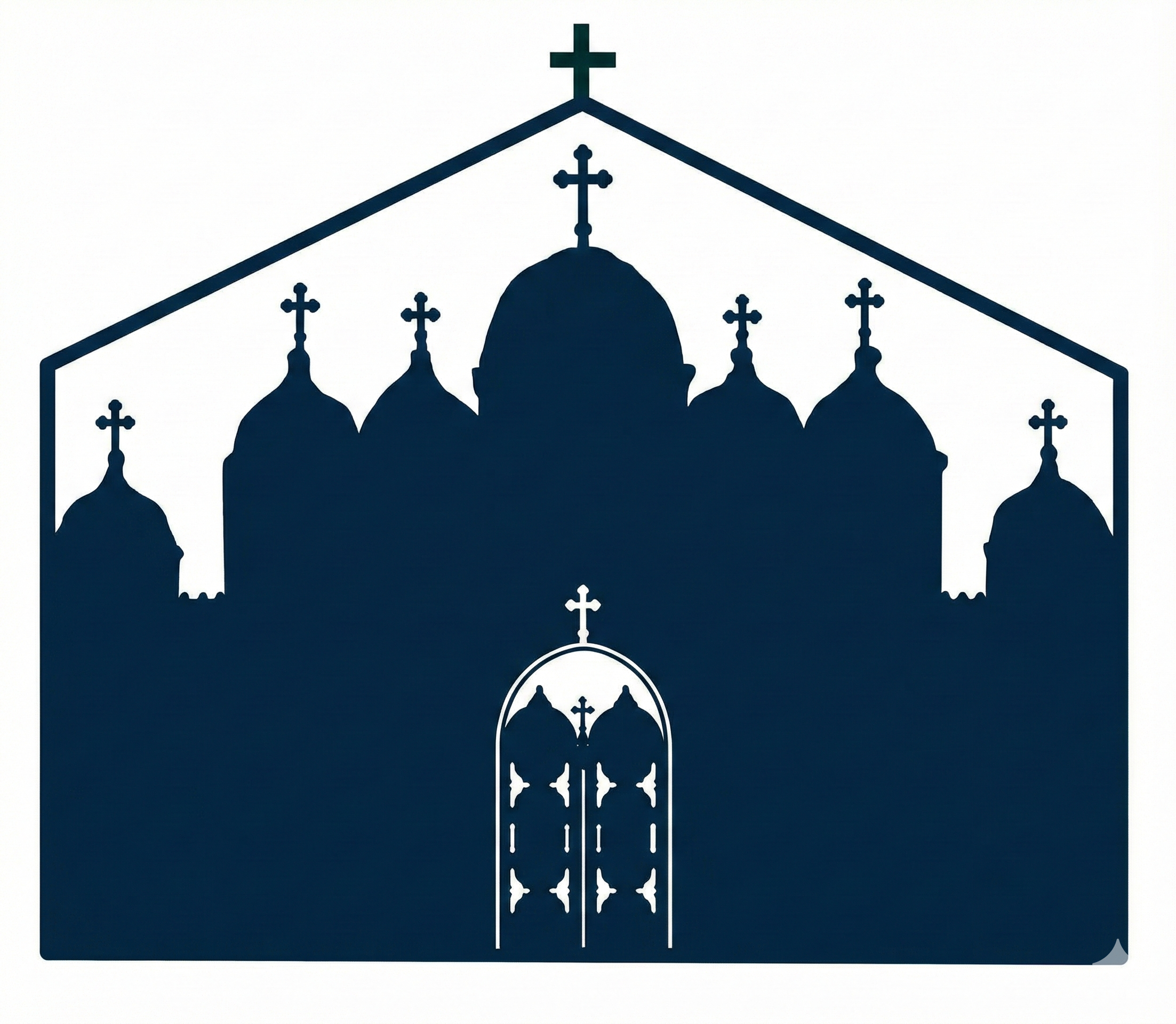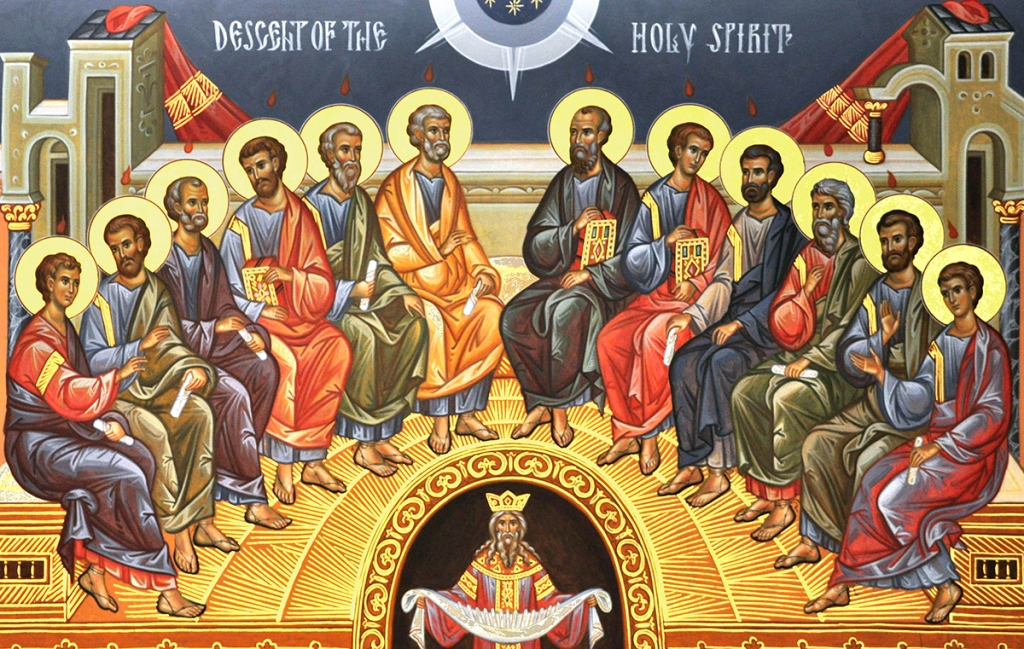2025/06/08 Osaka Church
In the name of the Father, and the Son, and the Holy Spirit
The Ten Commandments of Moses, as conveyed in the Old Testament, are all prohibitive commandments that “you shall not do.”
“You shall have no other gods before me,”
“You shall not covet your neighbor’s house.”
Based on these Ten Commandments, the Jews lived under the “Law” that covered their lives with a huge number of prohibitions. The Jewish festival “Pentecost” was a festival to commemorate the receipt of these “Ten Commandments” from God. It is exactly 50 days after the “Passover” (Pascha), which commemorates the Exodus from Egypt.
It was on this day of Pentecost that Christ’s disciples received the Holy Spirit. This corresponds to Christ’s completion of the salvation of mankind through his death on the cross and resurrection at the “Passover” (Pascha). Forty days after his resurrection, when he was taken up to heaven, the Lord promised, “I will ask God the Father for you, and he will send the Holy Spirit.” The Lord then said that the Holy Spirit would eventually make his disciples and those who had gathered together out of love for him understand the true meaning of what he had accomplished, give those who believe in this the power to unite with one another, and transform their community into a “new people of God.” This promise was fulfilled when they “gathered together” on the day of Pentecost.
The prophet Jeremiah once spoke the words of God as follows:
“Behold, the days are coming when I will establish a new covenant, not like the one I established with their fathers when I brought them out of the land of Egypt…. I will write my laws on their hearts” (Jeremiah 31:31-33).
Instead of the law engraved in letters on stone, the law that regulates humans from the outside with prohibitive words such as “Thou shalt not,” God will eventually give us the word of God “written on our hearts,” the Spirit of God that reforms and creates humans from the inside and guides them from the inside.
The Law is “prohibition.” It crushes humans with the fear of violation and punishment, and the guilt of not being able to keep the law. Paul says, “The letter kills,” referring to the law. These prohibitive commands cannot give rich, new meaning to our “lives.” If we are told not to do this or that, we can only shrink into a life of blindly following precedent. The Ten Commandments and Law given by God cannot be bad in themselves. However, as long as the law remains something that restricts humans from the outside, we will be “killed” by it.
To put it in terms that are familiar to us, unless we free ourselves from the things that regulate our lives from the outside, such as social ethics, morality, laws, traditions, and social conventions about what it means to be a man, a woman, a husband, a wife, a bride, etc., and re-examine their original meaning and importance from within, we will soon suffocate. The incredible potential that God has given to people will decay without being utilized. The same result will occur if the teachings of the Church are taught as ethics and morality, rather than as the Gospel, that is, a declaration of joy and freedom. Only when we are freed from such bondage can we begin to live in joyful fellowship with God.
The Holy Spirit gives us this freedom. The unrestrained nature of Christians, the flexibility of Christians, and the vitality of Christians are all gifts from the Holy Spirit. If we lament from our hearts that we are trapped and bound by things that are not God, and pray sincerely in the communion of love of the Church, “Lord, have mercy on me,” the Holy Spirit will set us free to a freedom we could never have imagined. It is a freedom that can never be lost, no matter what suffering or trial we may face. It will set us free from all attachments, hatred, and fear. We are invited to this freedom.

